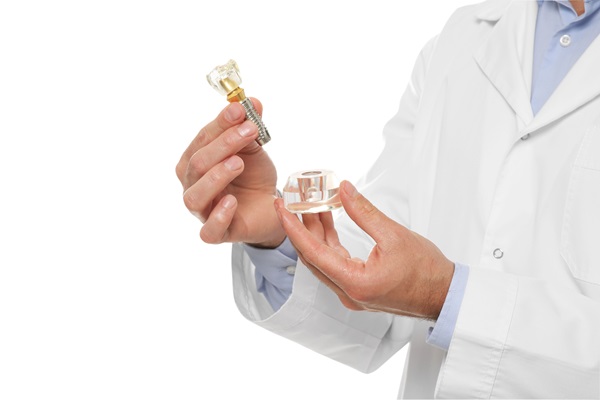Seven Common Questions About Dental Implants

In general dentistry, dental implants replace missing teeth roots. They can be fitted with crowns, dentures, or bridges to replace missing teeth. Implants typically come in the form of a titanium screw or rod placed inside the patient’s jawbone. They fuse with bone tissues around them, becoming one with the patient’s jaw.
Implants are the only missing teeth replacement option that prevents bone tissue loss after teeth fall out. The implant transfers bite forces into the patient’s jaw, giving bone tissues in the area the stimulation that they need to remain healthy.
Frequently asked questions about dental implants
Many patients are thinking about getting implants. Here are the answers to questions that they might have.
1. Who is eligible for implants?
The ideal candidate for implants should be healthy enough to recover from oral surgery. They should also have enough bone thickness in their jaw to hold the implants in place. Patients are evaluated individually before being cleared for implants. When evaluating patients for implants, the dentist goes over their health status, medications currently being taken, and bad habits, like smoking tobacco products.
2. What are the advantages of getting implants over options like bridges and dentures?
Implants are the closest thing that a person can get to real teeth when they are missing one or more teeth. These oral prosthetics do not require any special maintenance, unlike dentures. Brushing and flossing are all that implants need to keep them in good condition.
Implants also happen to be the only missing teeth replacement option that prevents the bone tissue loss that occurs when teeth are lost. Dentures and bridges only replace the visible part of the tooth, so they do not provide the stimulation that bone tissues in the jaw need to remain healthy. Lastly, implants are designed to last an entire lifetime, while dentures and bridges last anywhere between five and 15 years.
3. Are there any disadvantages to getting implants?
Yes, the installation of implants requires oral surgery, so there is always a risk of pain, inflammation, and infection. Also, getting implants takes longer than getting dentures or bridges. Dentists often must wait for implants to fuse with the bone tissues around them before placing the restorations. The process is known as osseointegration, and it can take up to six months. Getting dentures or bridges can be completed in as little as two weeks, and there is no need for surgery.
4. How long do implants last?
Implants are designed to last an entire lifetime. They are typically made out of titanium, which is one of the strongest metals around. Patients who get implants should not have to replace the implant in their jaw. However, they likely will have to replace the restoration at some point.
5. How do I take care of implants?
The same way you take care of the rest of your teeth. Implants do not require any special care; brushing your teeth twice daily and flossing once a day is all you need to keep them in excellent condition. Aim to visit a dentist twice a year so you can get routine treatments, and the integrity of your implants can be evaluated.
6. What is the process of getting implants like?
Getting implants inserted in the jaw requires oral surgery. The procedure usually starts with the dentist injecting the patient with an anesthetic to numb the area being worked on. An incision is made to access the jawbone, and a hole is drilled into the jaw for the implant.
The implant is pushed into the hole, so the bone tissues around it hold it in place. Any incisions made are sutured to end the first part of the treatment. The implant goes through a process called osseointegration as it bonds with bone tissues around it. It becomes part of the patient’s jaw, making it a stable base for restorations like crowns and dentures.
7. How do implants preserve bone tissues in the jaw?
Bite forces are transferred from implants into the jawbone, giving the tissues there the stimulation they need to stay healthy. Bone atrophy occurs when bone tissues in the jaw stop getting stimulated since the body thinks they are no longer needed. The jawbone starts to shrink, leading to changes to other facial structures.
Explore dental implants
Dental implants can help you get back to how your life was before you lost a tooth. Are you ready to replace your missing tooth? Call or stop by our Gainesville clinic to explore treatment options.
Request an appointment here: https://gallodental.com or call GDC Smiles at (770) 504-5725 for an appointment in our Gainesville office.
Check out what others are saying about our dental services on Yelp: Implants in Gainesville, GA.
Recent Posts
Losing a tooth is never something that you would want to happen, but since it can be unavoidable, you should know that a dental implant is one of the top options for replacing a missing tooth. There are many advantages to pursuing this path over alternatives like dentures. It is true that dental implant installation…
A dental implants is widely considered the tooth replacement solution that most closely resembles a natural tooth in durability, functionality, and appearance. However, like natural teeth, dental implants require diligent and consistent care to ensure longevity. Incorporating proper dental implant care into your oral hygiene routine can prevent complications and keep your smile healthy for…
Curious about dental implants? Read on to learn more. Having a missing tooth or teeth can make you feel self-conscious and reluctant to smile in public. In many cases, dental implants are the preferred and popular option to resolve this issue. Besides being a functional tooth replacement, they also appear natural and fit in with…
A dental implant is the gold standard of dental restorations. It provides stability and natural-looking results. Understanding the benefits of implants can motivate you to see your general dentist about it. Here are the different oral health advantages of a dental implant.The titanium rod acts as the dental root. It merges with the jawbone and…


